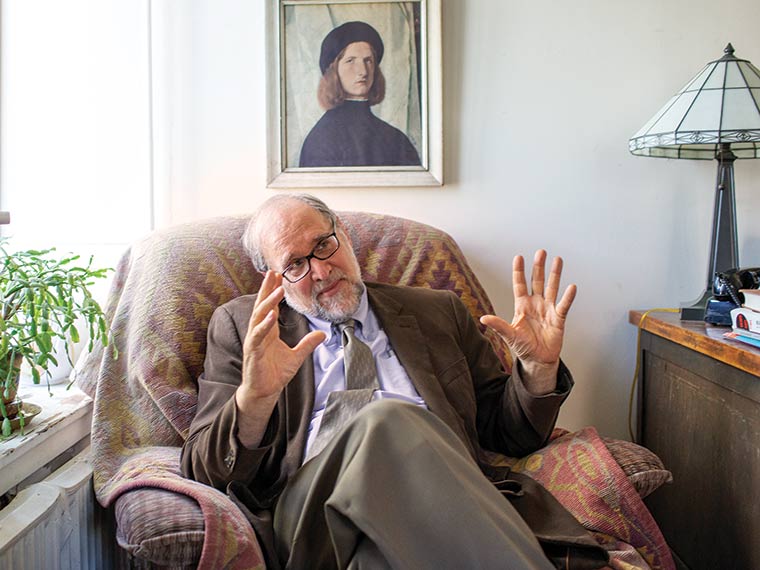Inspired by Inspiration

Life is short. Thinking is slow. A wise philosopher once wrote that: Sarah Lawrence’s own Michael Davis, who has been thinking, discussing, and writing about life’s most consequential and confounding questions since he first arrived on campus 43 years ago.
Davis’ latest book, The Music of Reason: Rousseau, Nietzsche, and Plato (University of Pennsylvania Press), is the product of a prodigious amount of thinking about thinking itself. More specifically, it’s inspired by inspiration—those seemingly random, unbidden, bolt-out-of-the-blue ideas without which there would be no electricity, no Beethoven’s Fifth Symphony, and no Velcro (whose inventor was famously inspired by contemplating a burr). What is inspiration, exactly?
Philosophers have been kicking around that question since Socrates. Davis’ intriguing proposition is that, whatever you want to call it, inspiration is part of humankind’s rational nature, as opposed to something separate from reason, however outside of ourselves we may experience it.
Consider a musical melody, for instance. Setting aside the question of where it originates, the melody itself has little meaning or appeal until it evolves. “It resolves itself into something that you can say, after the fact, ‘Oh, my god, it had to be that way!’” Davis says.
“It’s easy for us to talk about that as though it’s not rational, but it’s actually crucial to see that there wouldn’t be any thinking about anything at all unless that sort of thing happened.”
The book’s title refers to the notion that “rational” speech cannot adequately express life’s bigger, deeper truths, which is why the three big thinkers that Davis draws on employ poetic language to explore the nature of the soul, or even poetry itself. In one of the more fascinating revelations of Music of Reason, Davis demonstrates how the shape and structure of these poetic passages embody the very ideas Rousseau, Nietzsche, and Plato are trying to convey. In other words, they’re showing us, not telling us.
It resolves itself into something that you can say, after the fact, ‘Oh, my god, it had to be that way!’
A few modern-day philosophers have made some of these connections, but not to the same degree or in the same graceful, engaging writing style Davis is known for. A classicist with a particular interest in Plato, he’s written eight previous books on ancient philosophy and Greek tragedy, including The Soul of the Greeks: An Inquiry (University of Chicago Press, 2011). In 2003 Sarah Lawrence awarded him the Sara Yates Exley Chair in Teaching Excellence.
Davis says the aim of his latest work isn’t to redefine reason, but rather to draw attention to its perennially neglected complexity. In that way, he sees a parallel between what he’s trying to accomplish with Music of Reason and what he sees as the purpose of a liberal education.
At its best, Davis says, a liberal education calls our attention “to the fact that we know a lot, but we don’t know it in this sort of straightforward, easy-to-articulate way that we think we do.”
Written by Shannon Mullen
Photo by Bill Miles